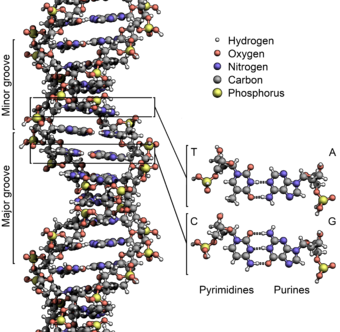Chris Powell: DNA doesn't tell you much; little incentive for compromise in legislature
Solving crime and exonerating the wrongly accused are no longer the main purposes of analyzing human deoxyribonucleic acid, or DNA. No, DNA analysis now is used most often in the fast-growing business of tracing ancestry.
Television commercials proclaim that if you mail a swab from your mouth, a DNA analysis company can tell you not just which ethnicgroups you derive from but even what your culture is and who you are.
It's fun and may be slightly more accurate than an astrological forecast but it's also pathetic. For while genes determine superficial features -- complexion, eye shape and color, hair type -- as well as susceptibility to certain ailments, the connection of genetics with culture and character is small, since culture and character are much more matters of upbringing, environment, experience and insight. Indeed, connecting genetics with culture and character is the ugly, old rationale for ethnic stereotyping, racism, and genocide.
The commercials for DNA analysis also suggest that culture is as trivial as mode of dress -- a flowered hat, lederhosen, a tartan kilt -- rather than civic and religious beliefs, literature, customs, history, an entire way of living.
Just as people who think they have lived previous lives always imagine themselves to have been ancient Egyptian princes or princesses rather than sweaty and exhausted slaves who piled stones on the pyramids, people hoping that DNA will tell them who they are may not realize that, as the saying goes, if you trace your ancestry back far enough you'll always find a horse thief.
One may be glad of kinship for increasing one's appreciation of humanity. But no one deserves credit or discredit for his ancestors, and genes do not determine identity. Especially in the United States, still the land of freedom and opportunity, DNA is too lazy an explanation for anything. People are far more what they make themselves.
* * *
Calls for compromise to break the stalemate over Connecticut's state budget sound high-minded but contribute nothing. Exactly who should compromise and how?
The conflicting positions on the budget are fairly principled.
Most Democrats in the General Assembly want to raise taxes a lot to preserve the status quo in state and municipal government.
Gov. Dan Malloy wants to raise taxes a little less and to transfer state aid from suburbs to cities.
And Republican legislators and the eight Democratic legislators who voted for the Republican budget want to raise taxes much less and sharply reduce spending on higher education.
No one has much political incentive to compromise.
Governor Malloy is not seeking re-election next year and without a budget he seems empowered to allocate money arbitrarily. There may be lawsuits about this but what court is more empowered than the governor to run the state without a budget?
Most Democratic legislators were elected by a party dominated by the government and welfare classes and so cannot impose sacrifice without jeopardizing their political careers. Already the enforcer of the government and welfare classes, the Working Families Party, is challenging the renegade Democrats for re-election.
And having passed a budget that the governor has vetoed, Republican legislators can claim to have done their job already and to be the party of fiscal restraint, leaving the governor to take the blame for whatever happens because of his veto.
This stalemate could continue until the election next year.
Chris Powell is managing editor of the Journal Inquirer, in Manchester, Conn., and a frequent contributor to New England Diary.
